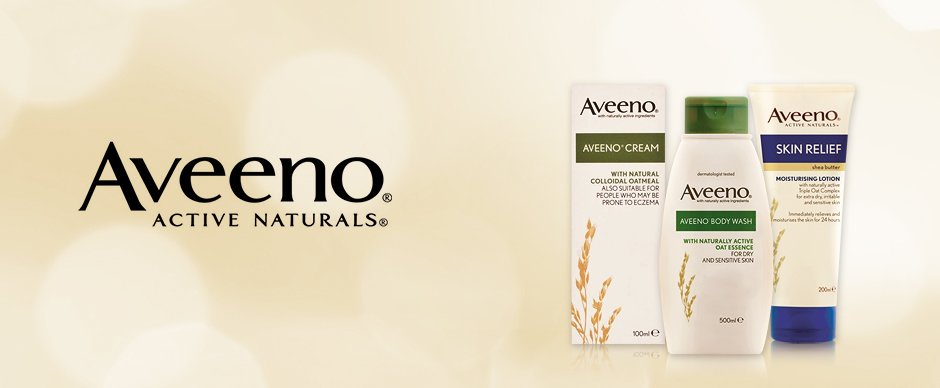
About Atopic Eczema
What causes atopic dermatitis is unknown, but it has been suggested that there is a hereditary link. Those susceptible to it also tend to have a sensitive immune system and are more prone to allergies (‘atopic’ means sensitivity to allergens) suffering with asthma and hayfever too. There are a number of both internal and external factors that can make eczema worse but avoiding these common causes can help to manage the condition. Aveeno Skincare is here to care for these skin problems, with natural ingredients and gentle moisturising properties.
Symptoms of Atopic Eczema may include any of the following:
- Redness.
- Inflamed or raised skin.
- Dry skin.
- Scaly appearance.
- Flaky skin.
- Itchy skin.
- Soreness.
- Feeling of tight skin.
- Cracked skin.
- Bleeding.
How to Treat Atopic Eczema?
Eczema can be particularly severe and difficult to treat once it is established. There is no cure for atopic eczema, but the skin should be kept well hydrated to ease the discomfort of dry skin. Correctly applying emollients is a good way of doing this. The best time to apply emollients is after washing, when the skin has been gently dried but is still slightly damp: this helps to lock in the moisture.
How to Treat Atopic Eczema with Emollients?
Emollients should not be shared with other people and you should try not to rub them into the skin, as this can irritate the skin further. Creams and lotions tend to be best suited to red, inflamed areas of skin, while ointments are best for dry, non-inflamed skin.
You may need different emollients for different areas of skin, and there are various products designed for certain skin types. For example, ointments are usually best suited for very dry skin, while creams and lotions should be used on less dry skin.
When skin is dry, emollients can be applied as often as every 2-3 hours. It is best to use creams, lotions and ointments as frequently as possible, even in between flare ups when the skin is unaffected.
Do be aware that if you use the same emollient for a long time, it can become less effective and may even cause irritation to your skin. If you are unsure, you should speak to your GP.
How to Treat Atopic Eczema with Steroid Creams?
Your doctor may prescribe a steroid (corticosteroid) cream: a safe and effective way of treating eczema if you have red and inflamed skin. These creams are applied sparingly, directly onto the affected area and are designed to work quickly at reducing inflammation. Your GP will be able to advise you on the strength of the corticosteroid needed.
How to Treat Atopic Eczema with Antihistamines?
To ease itching, your doctor may prescribe antihistamines, which stop the effects of histamine in the blood. Histamine is released by your body when it comes into contact with an allergen and can cause a variety of symptoms, including itching, sneezing and watery eyes.
Treating Atopic Eczema with Complementary Therapies
Some people choose to use complementary therapies to treat atopic eczema, such as aromatherapy. However there is little evidence to show the effectiveness of these therapies. You should always speak to your GP first, to ensure the therapy is safe for you to use.
Symptoms can also be reduced by avoiding triggers that cause the eczema to flare up. Advice on what can affect eczema can be found in our common causes section.
Do's and Don’t's of Atopic Eczema
The severity of eczema can be lessened by following some simple advice:
- Don’t scratch! This can aggravate or break the skin, which can lead to infection.
- Do moisturise frequently.
- Do avoid sudden changes in temperature or humidity.
- Do avoid sweating or overheating.
- Do avoid environmental factors that trigger allergies (for example, pollen, mould, dust mites and animal fur).
- Do reduce stress, anxiety or depression as psychological factors can influence atopic conditions.
- Do be aware of any foods that may cause an outbreak and don’t eat those foods.
- Don’t go swimming if you find the chlorine in pools makes your eczema flare up.
- Don’t wear scratchy materials, such as wool.
- Don’t use harsh soaps, detergents or solvents.

